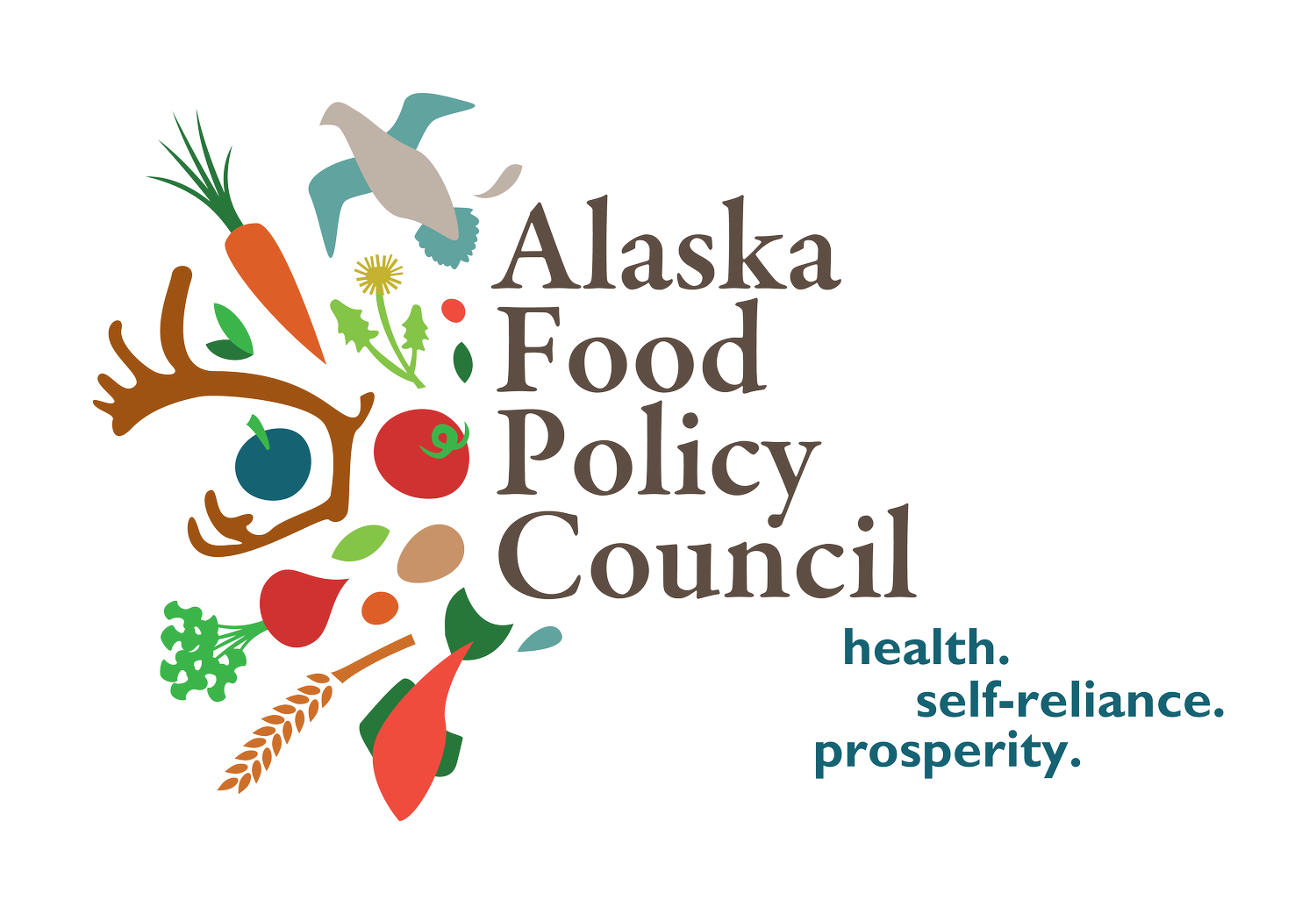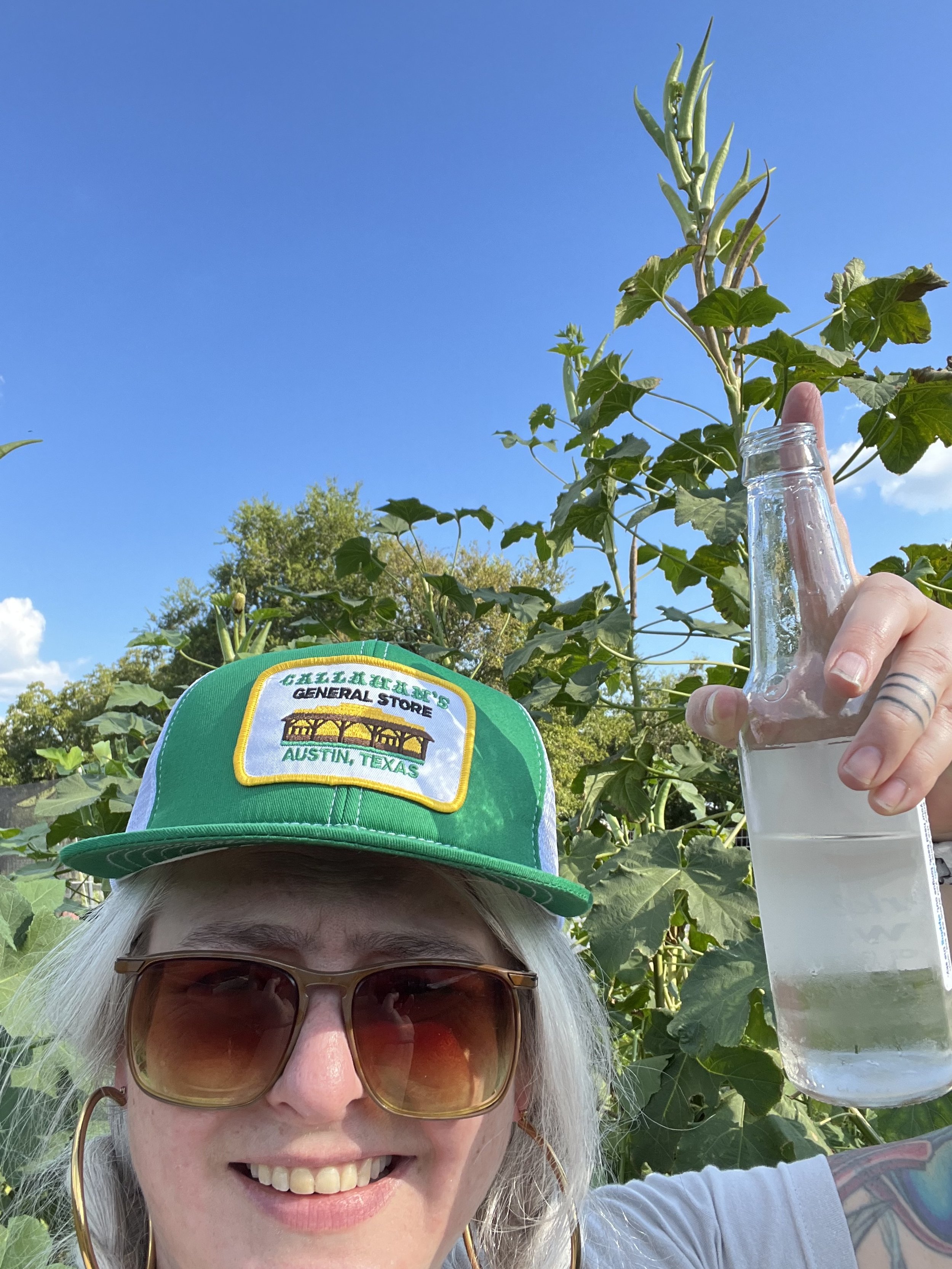AFPC Welcome Our New Communications and Outreach Director: Leah Moss
Guest blog by Communications and Outreach Director, Leah Allis Moss
Greetings all! I am the new Communications and Outreach Director. Being a part of this team has made me a virtual thesaurus of excitement- jazzed, stoked, thrilled, you get the idea.
I come from a background in food service, activism, comedy writing, event production, marketing, political campaigns, acting, small-scale urban farming, journalism, and even a brief stint selling apples to the New York City elite. It's a meandering path that got me here, but some critical moments in my life kept driving me towards work in food policy and accessibility.
My garden in Texas. I produced so much food I was able to feed my friends and family for months but boy, were those water bills insane.
My first bolete!
In 3rd grade, my mother won the Miss Frozen Foods America Award for the single parent category. Part of the prize was a "lifetime supply" of Sara Lee croissants and Stoffer's spinach souffle. Coming home each day from school to cartoons and a freezer full of buttery, calorie-rich, microwavable treats, I lived high on the hog, even if that diet made me lethargic and moody. The following year, we moved to a little shack outside LaGrange in a tiny town called Plum, population 13. (All it takes to be a town in Texas is to have a post office, which is about all we had. Well, that and a pack of wild dogs that chased trains). I would spend my days riding horses, writing strongly worded letters to elected officials about the future of the rainforest, and meandering through the brush picking dewberries. But I would come home to way too many turnip-based meals. My mom wanted to give me more than city life and frozen foods, but her thumbs were not green, and in her defense, the rocky shrub-covered lands were not suited for farming. Food options were limited and inaccessible. Thank god for those croissants.
My annual pilgrimage to honor the record-breaking pumpkins.
Catching up with my old pal Amy O’Connor, Executive Director of Alaska Farmland Trust at this year’s Alaska Food and Fam Festival.
Years later, I lived in New York City, sometimes working four jobs, from food service to interning at international micro-lending organizations to video store clerk and apple seller. I returned to school for political theory and philosophy at Hunter College. Each day, I would hop on the train and watch the sheer chaos of different humans smacked into each other as I scribbled my endless thoughts about gender politics and social justice. New York was great for riling up the sense of economic injustice I wore around me like a cape. In so many ways, it was and still is a playground for an elite class, but it is also, at its heart, millions of poor and working-class immigrants building community and ensuring they can feed their families. I only ate at 5-star restaurants if a line cook friend had somehow finagled their way into a back-of-house gig. But I did eat $1.25 breakfast sandwiches and coffee combos from the Yemen family who ran the bodega by my house. I ate soupy dumplings and fishballs on a stick in Chinatown, discount Indian food buffets in Jackson Heights, Jamaican meat pies in Flatbush, and so many stuffed cabbages from the Polish restaurant across from my house. These were people who held onto their identities and their histories through their food, and they made it accessible to everyone. And no, they likely weren't the finest cuts of meat or freshest produce, but they worked with what they had and made magic. Food was the foundation of the community.
Me and Chef Sonya Cote, an inspiration and one of the best pals around.
I returned to Texas years later, looking for restaurant and advocacy work between writing jobs. I met a woman who changed my life, Sonya Cote (who recently completed the James Beard Chef's Boot Camp for Policy and Change). She was opening up her first restaurant and shared with me her menu. It was simple and thoughtful, and she sourced every piece of every dish from local farmers and ranchers. She was using her opportunity to amplify the work of many small-scale farmers and financially support them. We opened that restaurant and muddled through the messes of sourcing issues, consumer confusion, staffing, and educating people bit by bit why it was so important to source directly and locally from farmers and, in turn, why that affected the food costs. Through our work, we also activated politicians to get water rate adjustments and tax breaks for producers and help create pathways for cottage industry food producers to legally and effectively sell their foods. I learned that my voice as an activist could build safety nets and change policy to make food more accessible. I learned that listening to the needs of producers and farmers was fundamental to creating solutions that worked with and for all of them, their families, and the food system that we were all a part of.
Fishing in Pilot Point with North Soul Salmon 2018- AKA Alaska Tinder photo.
And now, I find myself here in Alaska, where my relationship with the food system has evolved even more. For the last eight years, I have worked in education, climate advocacy, elections, and democracy access, supporting voices of all ages and backgrounds to have a space at the decision-making table while volunteering my time with art collectives and transportation advocacy organizations. The people here have taught me more than I could have imagined. Because of an incredible community of organizers, Indigenous educators, and artists, I have a deeper understanding of humans' connection to land for our physical and emotional health. I have seen pathways to food security I never thought possible before. I have learned to hunt and process large game and continue to share that knowledge with community members looking to learn the skills inherent to these lands. I have learned to forage, harvest, and process the wild foods and discover the stories of their history and their value to the people who have stewarded these lands for 10,000 years. I have pulled salmon from set nets and adjusted my perspective on time in spaces where tides were the only timepieces. I have learned that food security ebbs and flows with the climate and policies around accessibility. I have learned that we are interdependent on the lands and waters we live on and near.
My last visit to Texas visiting Eden East Farm. Do you see the size of this Okra?!
I am again elated, passionate, and exuberant to be in this role. I see a bright future for our communities in Alaska. As the Communications and Outreach Director, I look forward to meeting you all, telling your stories, and ensuring that your needs and vision sit at the table, no matter which part of our food system you are a part of. Alaska has unique opportunities to combine traditional knowledge and technology to support sustainable growth, manufacturing, and distribution models. We have a vibrant community of big thinkers and small farmers who have already shown how much they are capable of when we work together. We can ensure food is abundant, accessible, nourishing, economical, community-building, and connected to this beautiful place we call home for generations. It is an honor to take all the pieces of my path to this role, amplify the work already happening, and help each other connect for even broader possibilities.
Excited to get to work with all of you!!
AFPC Executive Director Robbie Mixon and I supporting Anchorage Farmer’s Markets.













